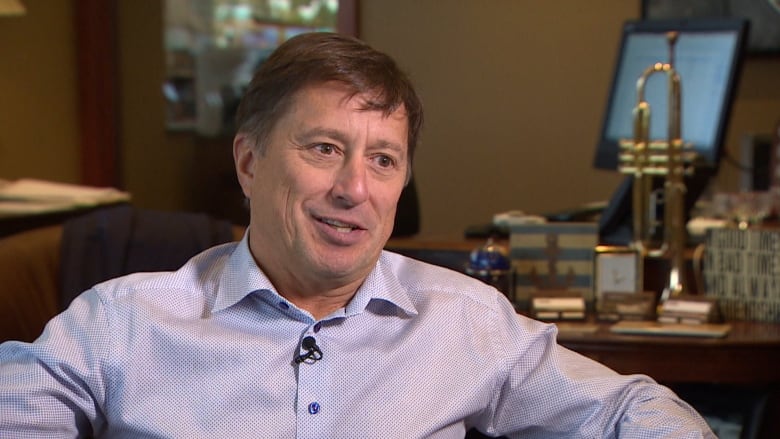 Are local politicians changing their tactics in dealing with social media hate? | | |  | | | For years, local politicians have lamented what they see as the decline of discourse from a small but vocal portion of the public — particularly on social media — and have frequently raised the issue of harassment, abuse and threats.
These days in B.C. though, more first-term politicians are searching proactively for solutions, before it overwhelms them.
“I think as a leader, I have a responsibility to change the space so we can invite more people into the space,” said Langford councillor Colby Harder, after her council passed a social media policy that allows staff to delete comments on city posts if they’re deemed abusive or hateful.
A week after that decision, Victoria councillor Jeremy Cardonna told the Times Colonist he’d be more active in screening out comments from the public that he deemed as crossing the line, saying he had received veiled death threats in his first few months in office.
“I think it's about understanding where the line is,” he said.
“It’s cordial, it's collaborative and just using basic decency, because not only is it scary to receive threats, but it's also deeply ineffective. The people that scream at politicians don't usually make it very far.”
There are aspects of public feedback at the local level that can make things feel more heated than provincial and federal politics. For one, councillors make decisions about things right in their backyard — including what can be built next to them, and who can be doing what in parks or on the streets — which can provoke a more personal response.
And as social media educator Jesse Miller notes, mayors and councillors don’t have the resources that MPs or MLAs do.
“They’ll have [access] to individuals who are part of communication groups … and can navigate some of the commentary that comes in,” he said.
“But if you’re at a really grassroots level, you can’t even put out a social media post about something happening in your community without everyone kind of coming at you … it can be quite overwhelming.”
Of course, while politicians can be proactive in screening abusive comments and creating more civil spaces, Miller points out that many of them could do a better job in calling out similar behaviour from their supporters.
Vancouver councillor Sarah Kirby-Yung agrees — while also noting it’s another issue where part of the solution is asking for more tools from higher levels of government.
“We need policies against online hate, and we need tools to combat those, and I think we’ve got some ways to go,” she said.
“But a huge part of it is having other people call it out … if you see something, say something.” | | |  | | | 1. West Vancouver | | | Last week, Metro Matters reported that 13 different Chief Administrative Officers in B.C. had retired, resigned or were fired in the last six months, as we talked about the tensions that can exist between existing staff and new mayors and council — and the many ways such housecleaning can go sideways. Well, we can now make it 14, as West Vancouver has a new chief manager following the departure of former CAO Robert Bartlett. Add with two other senior staffers who have quit or are on leave, plus allegations of bullying and harassment, it's safe to say West Vancouver will be worth watching in the months ahead.
Read more in the North Shore News | | |  | | | 2. Surrey | This week, in As The Police Saga Turns: it was revealed that Surrey Mayor Brenda Locke has declined meetings with the Surrey Police Service, and a new poll shows more support for the RCMP. As for the money former mayor Doug McCallum spent on legal fees that were related to the entire controversy? Turns out, it was $316,000 — and because McCallum was acquitted, the city won't be getting it back.
Read more | | | |  | | | 3. Drugs in public spaces | Port Coquitlam isn't the first municipality to ban drug use in parks, as different municipalities take different strategies with the province's decriminalization pilot. But Mayor Brad West has one of the biggest microphones in B.C., and as such his comments about why Port Coquitlam was taking such a move — and why he thought the province wasn't moving quickly enough to deal with concerns — got plenty of attention.
Read more in Business in Vancouver | | | | | |  | | | 4. Farts | Sometimes, a council becomes so dysfunctional that it becomes remarkably easy for tiny misunderstandings to become big issues. Which might explain why a Kamloops councillor was compelled to criticize the mayor over allegations of a fart joke, only to retract it hours later when it turned out the mayor smelt the allegations — but wasn't the person who dealt the joke.
Read more in Kamloops This Week | | | |  | | | 5. McDonald's | It's a classic tale of two cities: one wants a Big Mac, one doesn't. Specifically, this week Grand Forks council approved a development approval for the giant global fast food chain, with councillors giving glowing praise to the project. Meanwhile, the town of Kimberley had a public hearing on their own proposal for golden arches, with the project continuing to divide the community. Read more in the Kimberley Bulletin | | | | | | Share this newsletter | | or subscribe if this was
forwarded to you. | | | | That's it for this this week! In the meantime, check out the latest headlines at cbc.ca/bc and follow our municipal affairs reporter Justin McElroy on Twitter. And if you have any questions you might want answered in a future mailbag, drop Justin a line at metromatters@cbc.ca. | | | |

